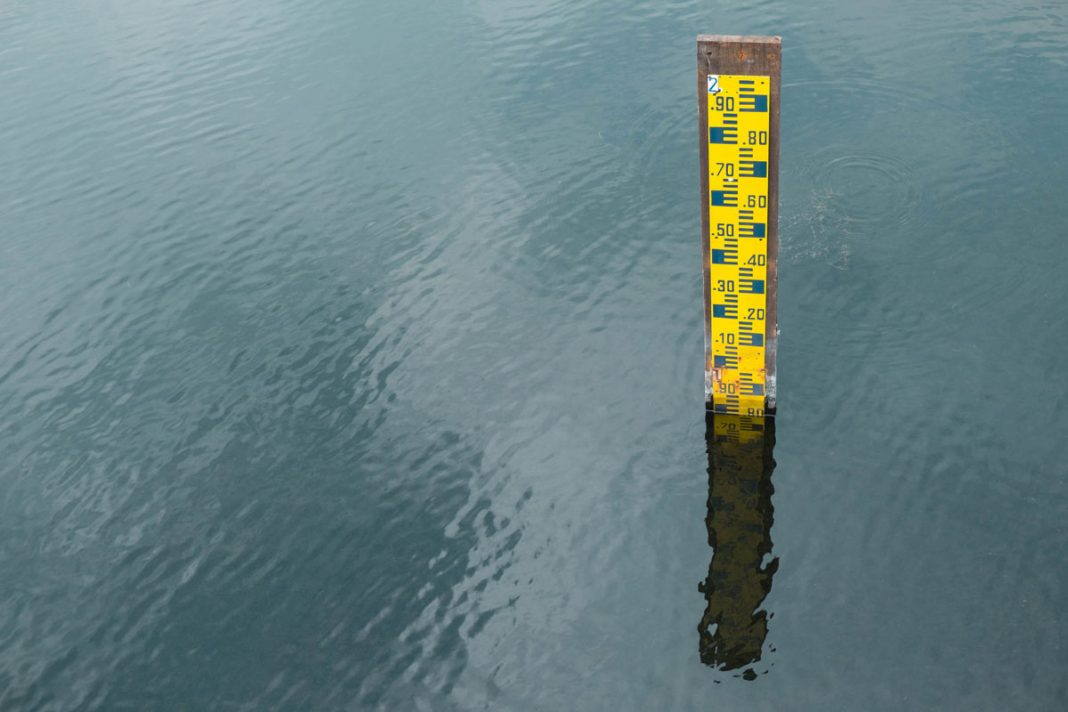Recorder correction: In reference to a December 20, 2019 article (‘IJC takes action on Great Lakes levels’) published in the Recorder, the statement from Mary Muter about action by International Joint Commission (IJC) Commissioners is incorrect. The Lake Superior Board of Control did not request higher discharges from Superior into Lakes Michigan, Huron and Georgian Bay, nor did the Commission deny a request.
As noted in a December 10 news release, the Board recently received approval for the IJC to continue to deviate from Lake Superior Regulation Plan 2012 through this winter. A small amount of additional flow will be released through the St. Mary’s Rapids to offset expected and potential unscheduled reductions in flows at the hydropower plants that often occur in challenging winter conditions.
This will be achieved by maintaining a gate setting equivalent to one gate fully open over the winter months instead of the typical winter setting equivalent to one-half gate open.
Gates are typically maintained at a constant setting in winter to avoid issues with ice, including the potential for ice jams in the St. Marys River. Additionally, the higher rapids flows from December through April provide an increase in wetted habitat for fish that have already spawned in the rapids or that may over-winter in this area.
It is anticipated that this deviation will have a minimal impact on Lake Superior and Lake Michigan-Huron water levels.
The Recorder regrets any inconvenience this error may have caused.
ONTARIO – A representative of Restore Our Water International (ROWI) told the Recorder early this week that some good news has been taken on their concerns with water levels. As reported in the December 6 edition of the Recorder, ROWI had called on the International Joint Commission (IJC), Canadian and US Commissioners to take immediate actions as lake levels in Lakes Michigan/Huron and Georgian Bay basins are at crisis conditions, and called on the IJC to have the International Lake Superior Board of Control (ILSBC) to reduce the outflow discharge for Lake Superior to reduce, to some extent, the high water levels on the three lakes.
“We do have some good news,” Mary Muter, vice chair of ROWI told the Recorder early this week. “The IJC commissioners denied a request from the ILSBC to have the higher discharges from Lake Superior into Lakes Michigan, Huron and Georgian Bay. They (ILSBC) wanted five gates open, but now are only allowed to have one gate open, to discharge into Lake Superior into the other lakes (including Lake Huron).”
“So, this is good news,” said Ms. Muter, noting, “the IJC decision is in direct response to the letter that we (ROWI) had sent to the IJC. Up until now there has been no thought on the part of the ILSBC to control downstream water flow level conditions. But the IJC has indicated the water levels are too high and that they couldn’t discharge as much as of December 1, 2019.”
Ms. Muter told the Recorder, “it will take time for that decrease (in water levels) to take affect which will leave us with a wild winter and potential disaster to unfold in the spring. I spoke to Roger Gauthier (chair of ROWI) a few minutes ago and there are a couple of other things the IJC needs to do: they need to stop the shipping and ice breaking in the St. Clair River and Detroit River this winter. On the St. Clair, they break up the ice and it disrupts the water flow. The ice can become as much as 8-12 foot high. If they left things alone and it would take on more flow, but instead it (ice) blocks the St. Clair River. We (ROWI) are calling on shipping to be stopped between the St. Clair and Detroit River for the winter because of the water level conditions. Not very many ships travel in this area in the winter. But this request would take a great amount of political will to agree to our request.”
As well, Ms. Muter said ROWI is calling on the IJC to investigate what is happening on the St. Clair River. “We think the levels and water flow may be affected due to sand moving into the river beds.” She explained that during the low water years, significant sand supply was moving into St. Clair because of the extreme water levels, and it is filling the river mouth. “That could also be contributing to the high water levels we see now. That needs to be stopped.”
“So the IJC needs to stop shipping for the winter between the St. Clair and Detroit River, decrease the outflow from Lake Superior and collect symmetry to find out what is going on in the St. Clair River,” said Ms. Muter. “This also speaks to the need for one control board for all of the great lakes. We (ROWI) are pleased that John Sisson, one of the new IJC US commissioners has indicated he is interested in one control board for all of the Great Lakes.”
As reported in a previous Recorder article, Ms. Muter noted the economic and ecological costs of these extreme high water levels could be catastrophic. She pointed out that both the US Army Corps of Engineers (USACE) and National Oceanic Atmospheric Administration (NOAA) are predicting water levels will be 40 centimetres (about 16 inches) higher in March 2020 than at the same time in 2019.
A letter to the IJC Canadian and US Commissioners dated November 4, 2019 from Roger Gauthier, chair of ROWI and Ms. Muter, reads in part, “our organization (ROWI) represents shoreline property owner organizations on both the US and Canadian sides of the Lakes Michigan, Huron and Georgian Bay basins. The economic and ecological damages that are occurring as a result of the extreme high water level conditions on Lakes Michigan, Huron and Georgian Bay have now reached a crisis, and IJC action is needed now to address it. Our lake levels now meet the ‘crisis conditions’ as defined in your excellent 1993 Levels Reference Study.”
“What is now very alarming are the projections for spring water levels four our lakes-approximately 1-2 feet higher than spring 2019,” the ROWI letter reads. Using information provided for Lake Superior and Michigan/Huron, “it is obvious that Lakes Michigan/Huron and Georgian Bay are not being treated equitably by your International Lake Superior Board of Control (ILSBC). Last year our organization sent letters to the ILSBC recommending action but the reply basically ignored ROWI’s concerns and dismissed us. This unfair treatment of our lakes has to stop now. We strongly recommend that you advise the ILSBC to deviate immediately from Regulation Plan 2012 and reduce the outflow discharge from Lake Superior as an emergency measure to at least reduce to some extent the crisis high conditions on Lakes Michigan/Huron/Georgian Bay.”
“It is simply unfair and ecologically unsound to continue to allow a 6.5+ foot range for Lakes Michigan and Huron but only a four foot range for Lake Superior. It is well known that a 5 to 5.5 foot fluctuation range benefits wetlands but that any level outside that harms wetland health and reduces their size,” ROWI wrote.
“At this time we have important research results on the wetlands of Georgian Bay to share with you,” ROWI wrote. “One of our member organizations, Georgian Bay Great Lakes Foundation, has been working with McMaster University’s Professor Pat Chow-Fraser for many years on Great Lakes issues, with particular focus on the impact of water levels on wetland health and water quality. Her findings from last summer are, quite frankly, alarming. On Georgian Bay the wetlands at current extreme high water levels have not been able to migrate inland due to granite bedrock shorelines or 6 to 8 feet tall pine trees that are now dead or dying. This has compressed the wetlands into a very narrow congested area with no protected area for the minnows and young fish. Also concerning is that the water quality at these previously pristine wetlands is now highly degraded by nutrients picked up underneath the dead pine trees. This has already led to algal growth, but we fear that algae could be much more widespread next summer, and fish populations will be negatively impacted.”
Ms. Muter told the Recorder that in a location at McGregor Bay last summer, “algae blooms were found where they had not been previously. And if water levels continue to increase much more it could become unsafe in areas, vegetation will be harmed and grass and trees will die, and for instance pine needles release nutrients and this helps cause algae blooms.”





